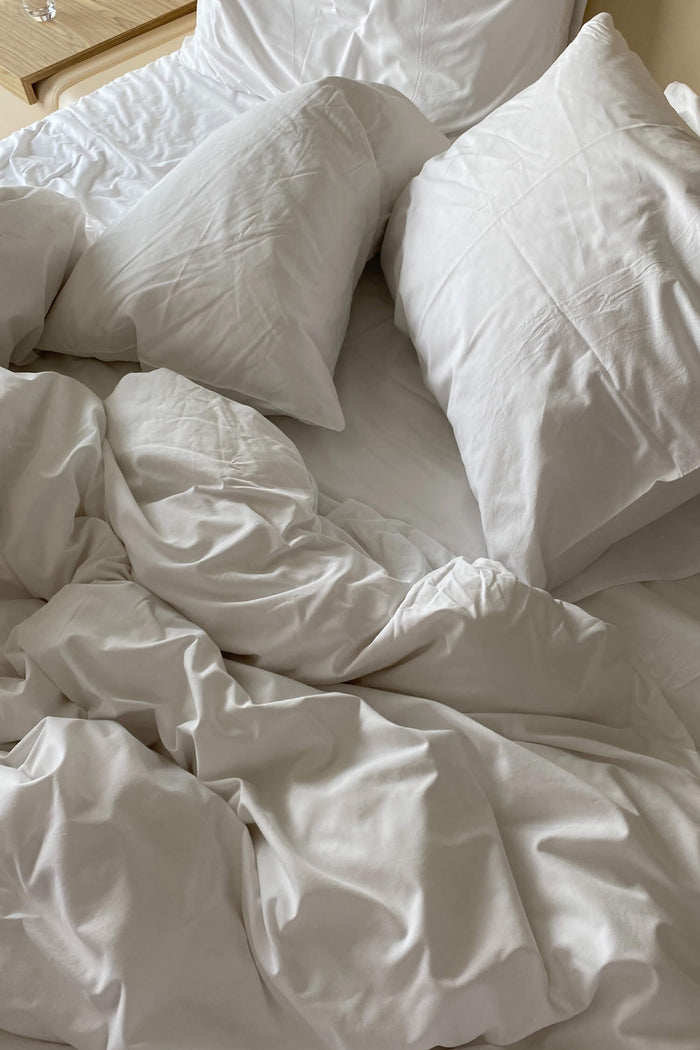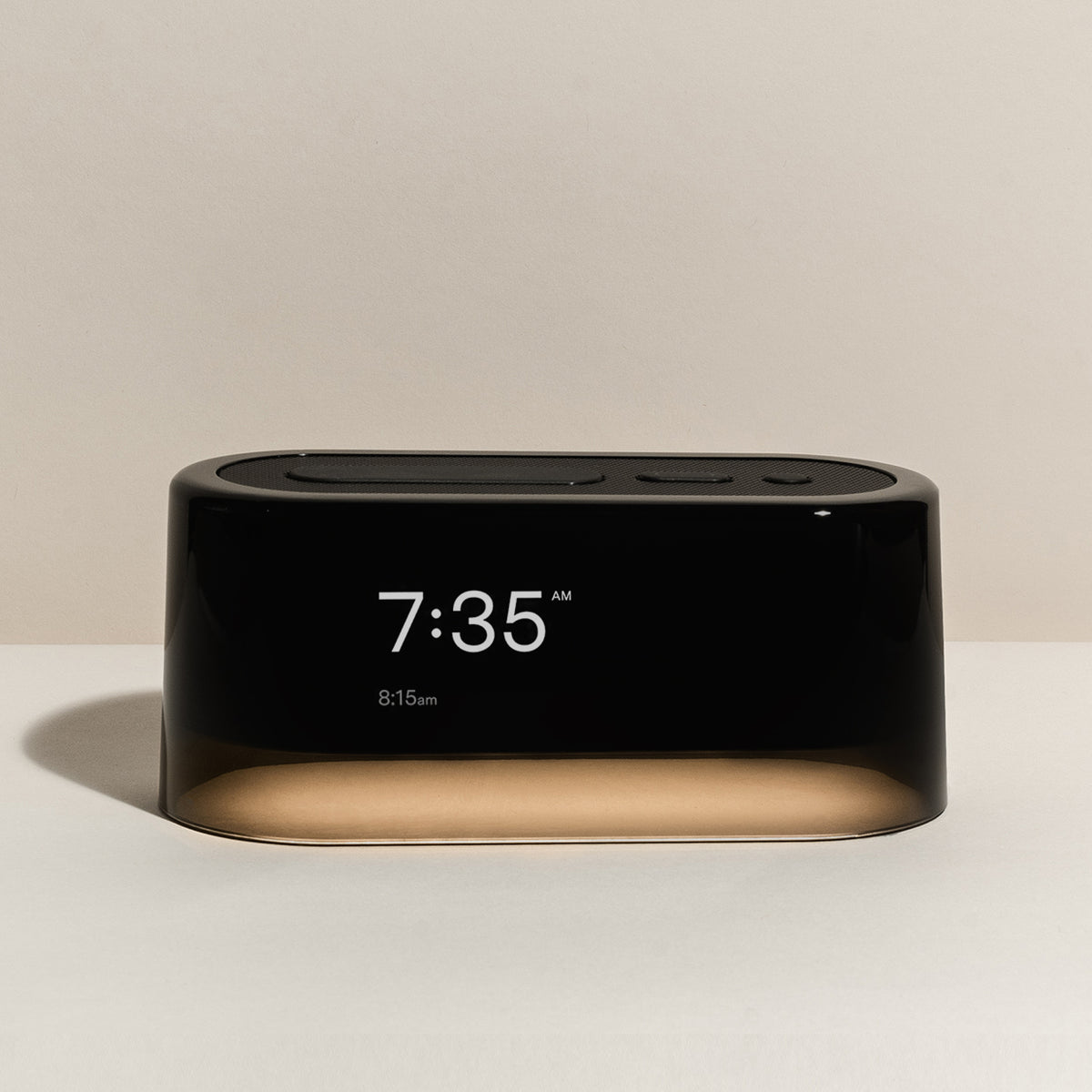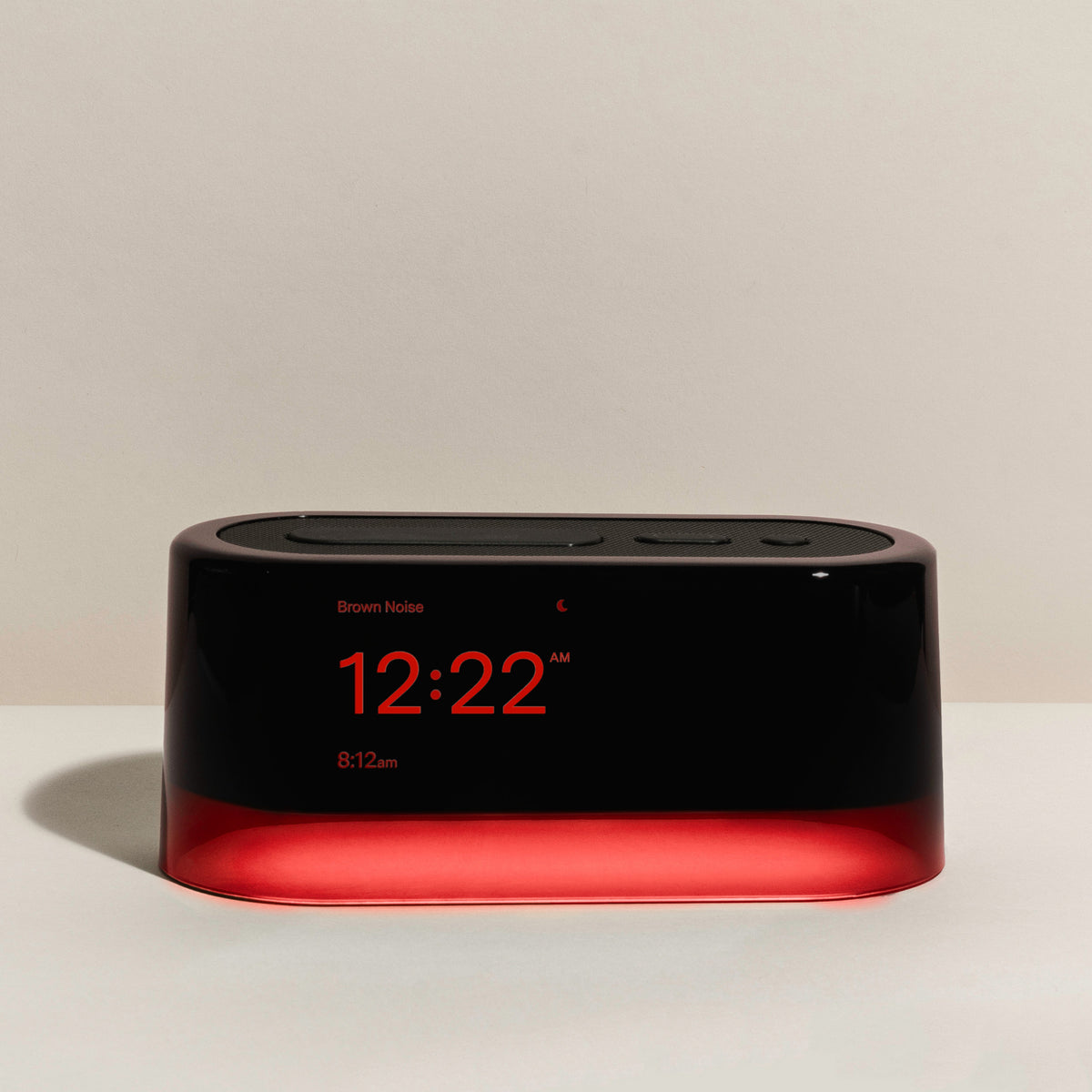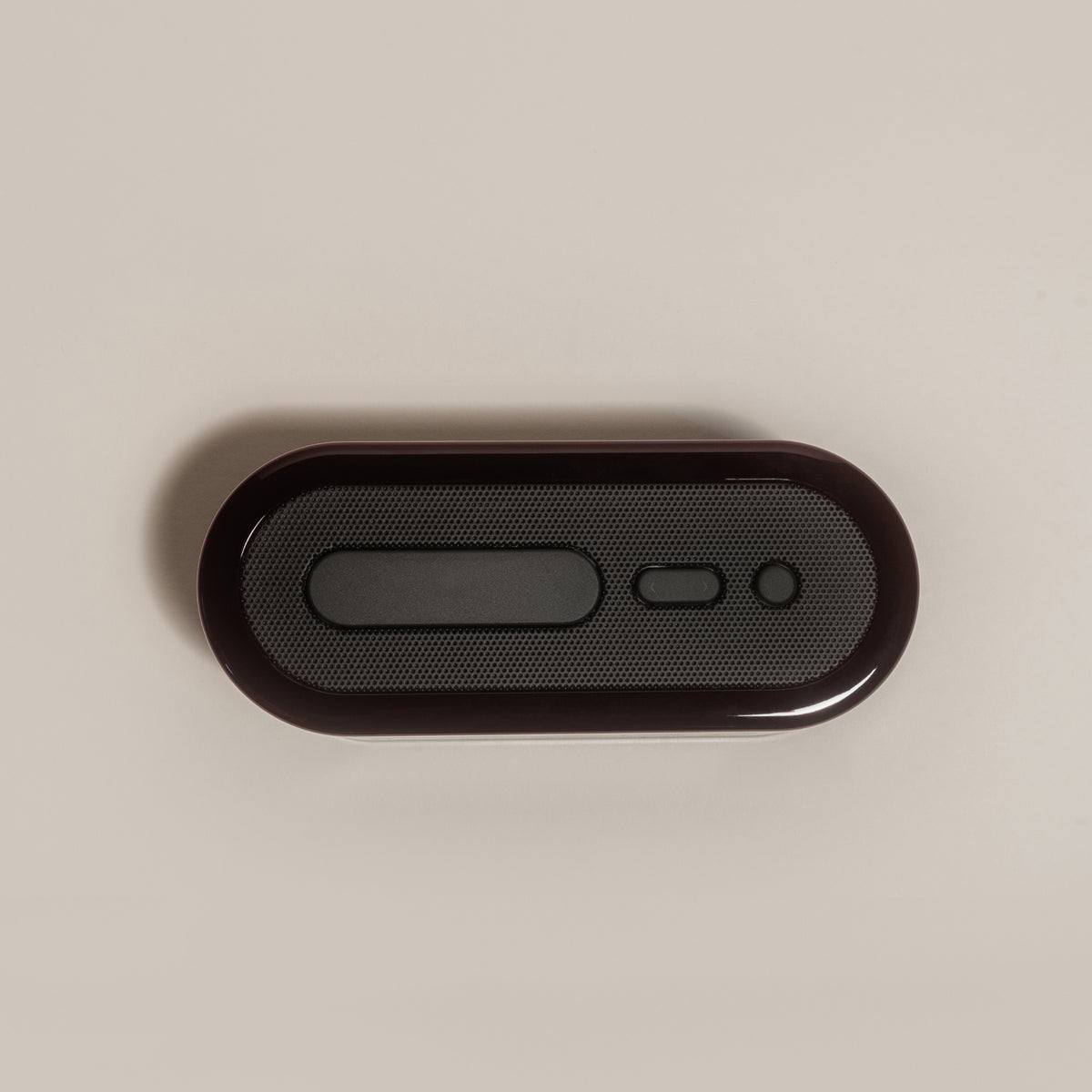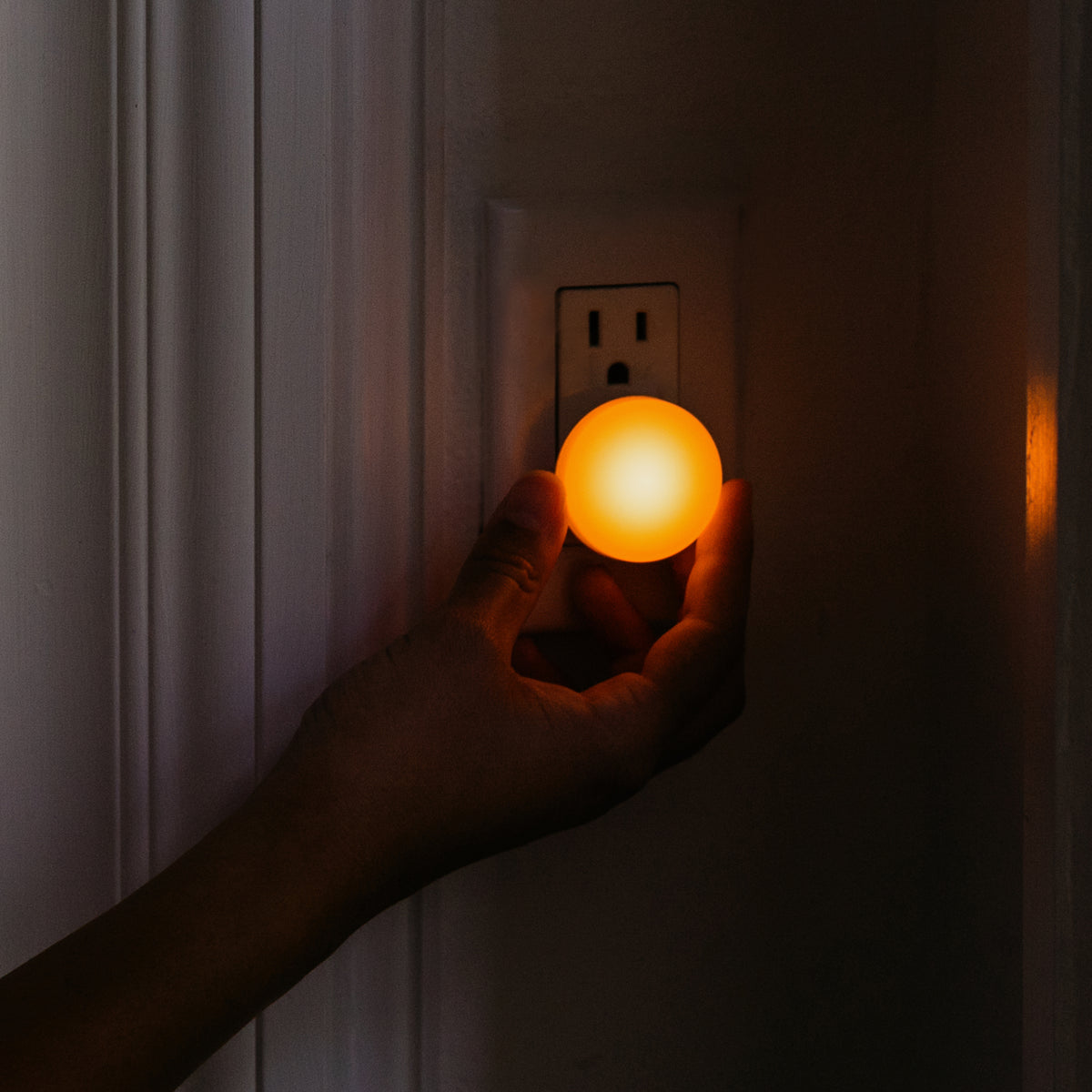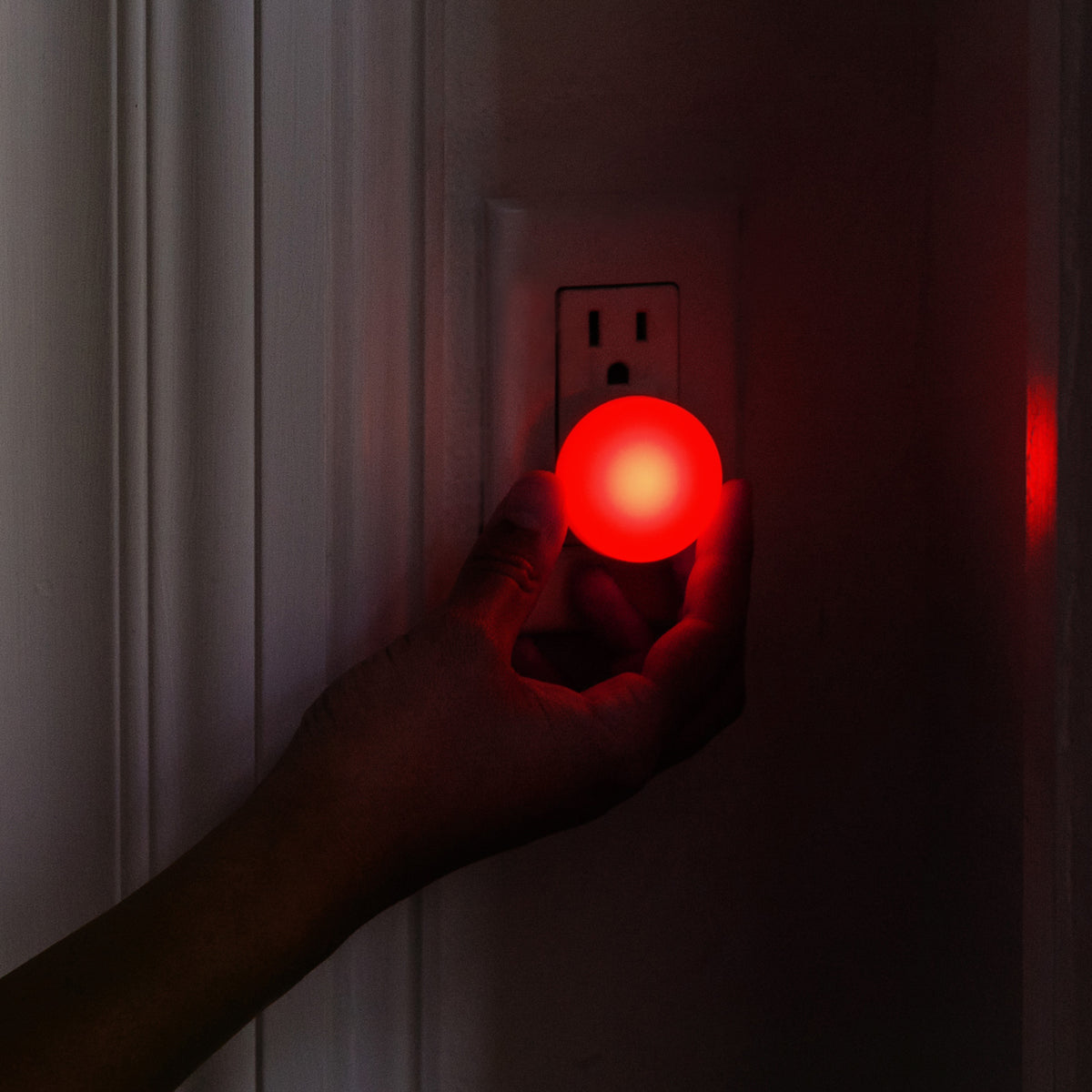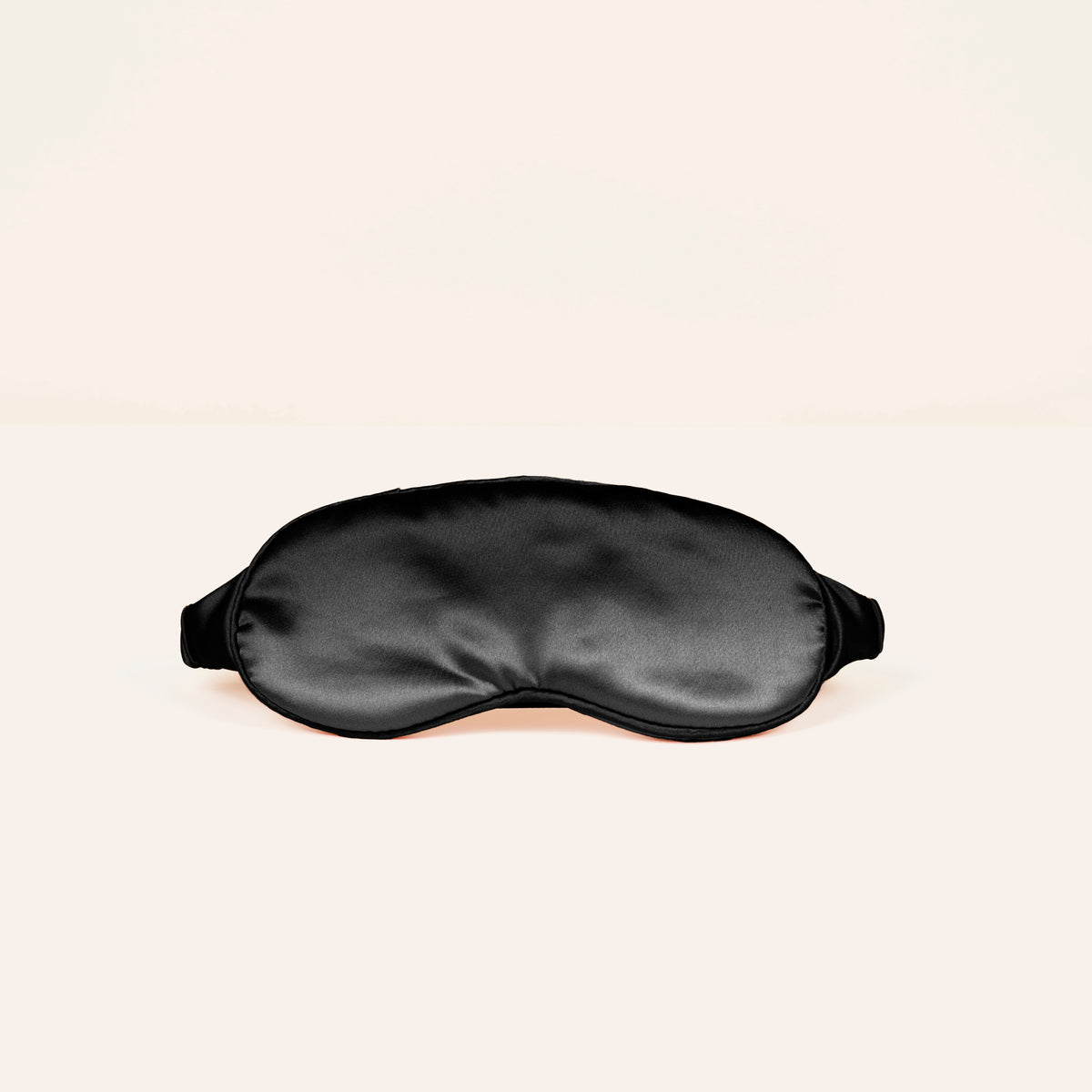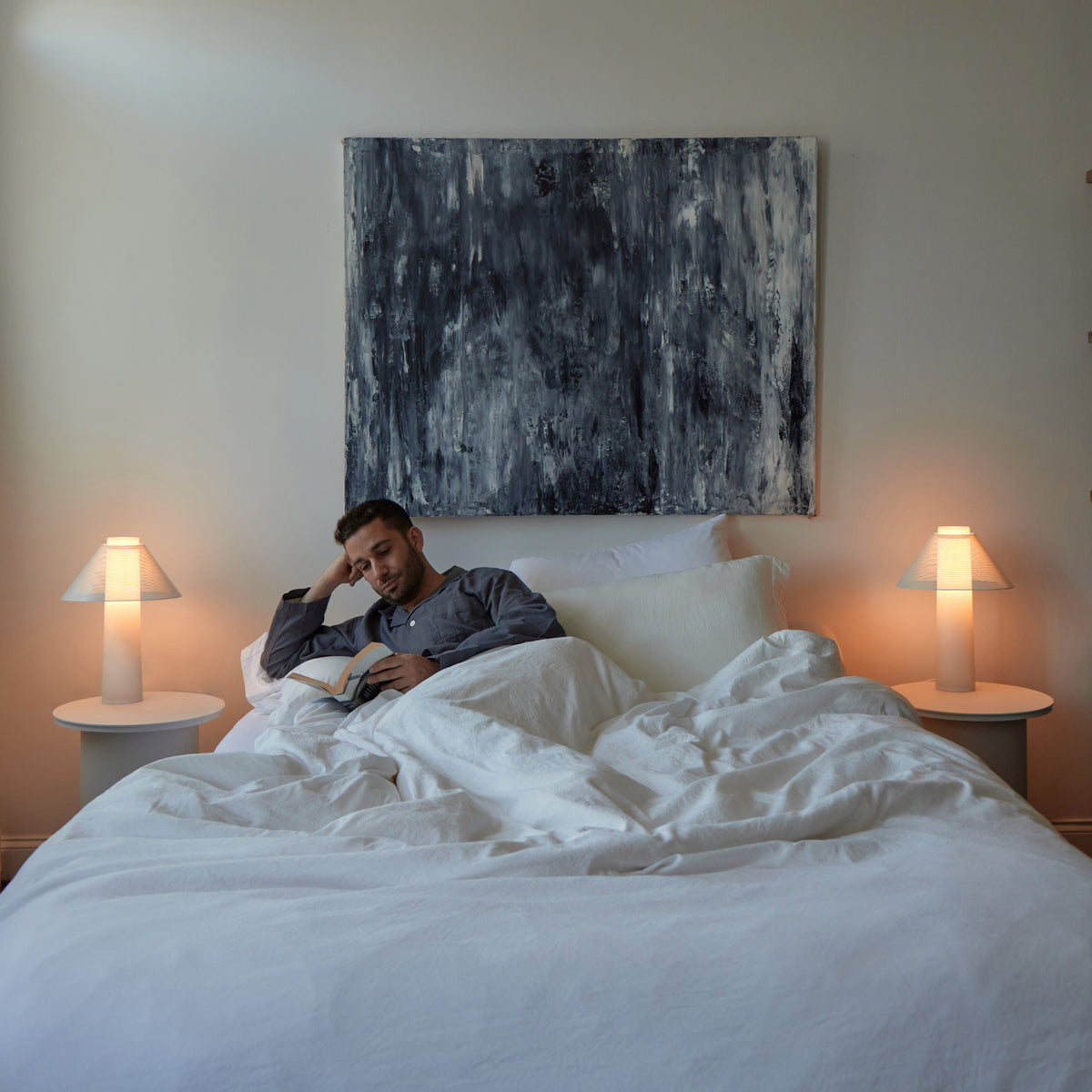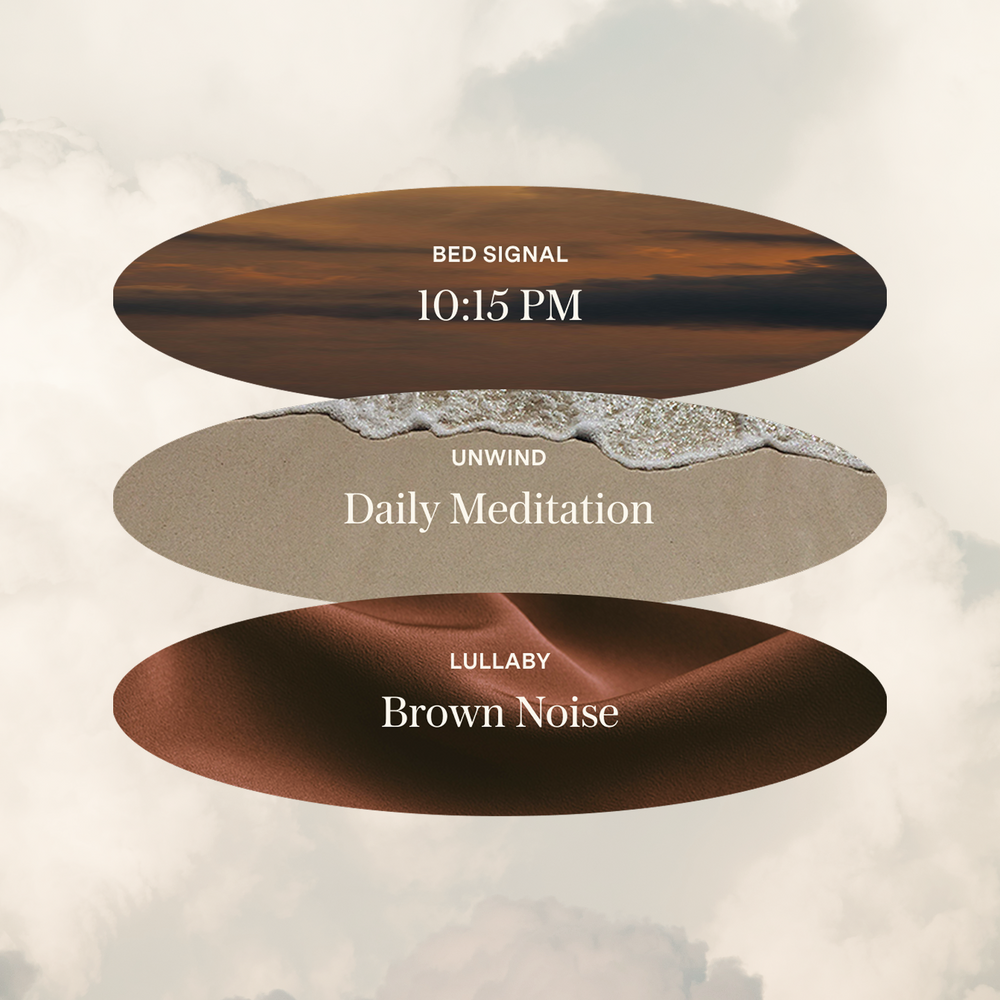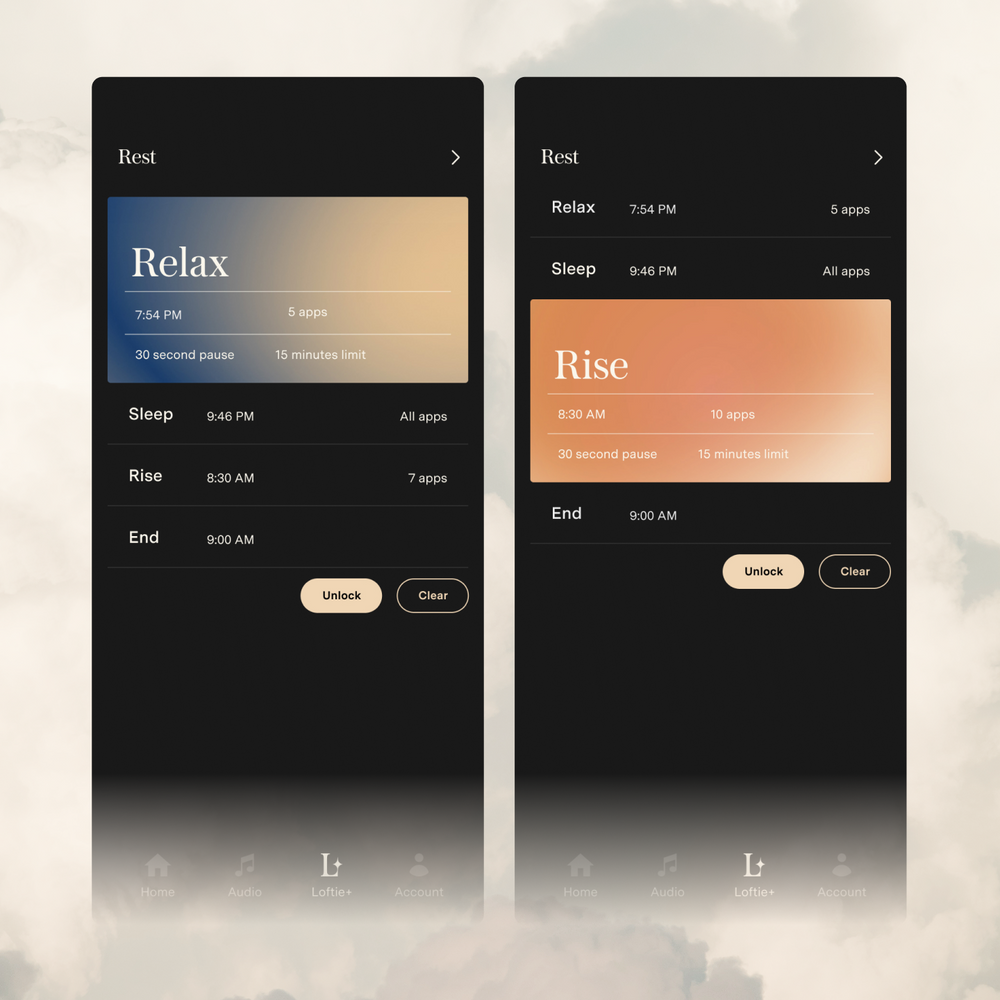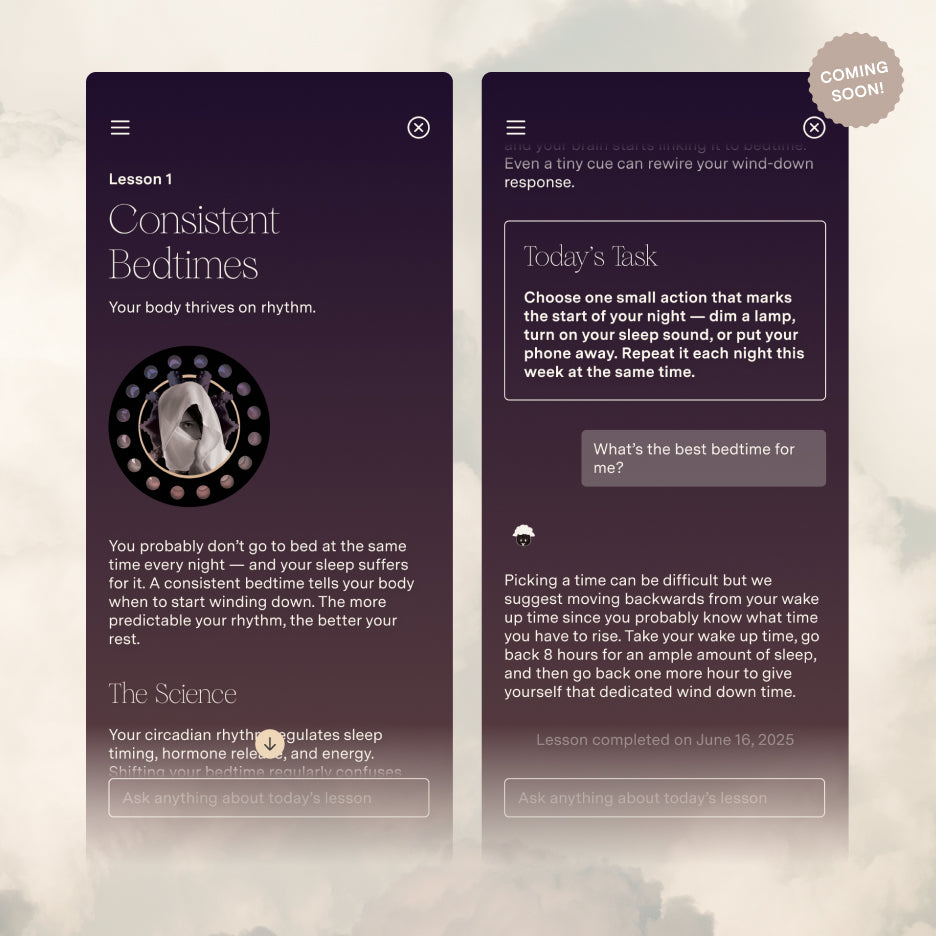Similar to working out or learning a new skill, we can train our body to sleep and wake like clockwork. Our body and our brain thrive on routine. Think about things you do every day like brushing your teeth, making your bed, getting dressed or putting on pajamas. These are all small routines that prepare the body and brain to perk up or wind down depending on the time of day. The more we commit to an evening routine, the stronger the signaling becomes to our body and mind to naturally sleep and wake at the same time each day. This consistency is key for optimizing health and ensuring you get the best rest possible every night.
So how do you find the best sleep schedule for you? According to the National Sleep Foundation, adults are advised to get about 7-9 hours of sleep per night. There are a variety of factors that determine when we naturally feel ready to sleep, some being hereditary and others due to lifestyle, but here are some ways to create a sleep schedule you can stick to.
Finding the right sleep routine
If finding the right sleep routine sounds like a goldilocks nightmare, we suggest thinking back to your last vacation. And if you can’t remember, (this is a great time to book one and put your new sleep routine to the test), the think back to a day when you were able to fall asleep and wake up at your leisure. Can you remember when your body naturally fell asleep and woke up?
To determine what is the best sleep schedule, it’s important to pay attention to your body absent of external factors. When do you start feeling drowsy? What time do you feel alert in the morning? We encourage you to get curious about uncovering your natural patterns around your unique sleep needs. Studies show that a consistent sleep routine can have long term health effects on metabolism, blood pressure, cholesterol, and blood sugar. One study found that for every one hour of variability in sleep schedule, the risk of having metabolic syndrome rose by 27%.
If you are receiving enough quality sleep, you will likely be waking up feeling alert and clear throughout your day. While it’s normal to experience the occasional mid-day slump or dip in energy, this shouldn’t be an everyday occurrence. It is possible to wake up sufficiently rested and refreshed enough to stay awake during the entire day. Another signal your sleep routine is working is if you naturally feel sleepy before bedtime.
Two of the most common disruptors of sleep are light and stimulation. So even if your body feels ready to go to bed, things like artificial light or stress can send signals to the brain to keep you awake. Sticking to your routine and eliminating these kinds of disruptors can greatly improve your quality of sleep.
Tips for following your routine
How to get a good sleep schedule starts long before your head hits the pillow. And it also involves more than just a bed and wake time. We rounded up some easy tips to incorporate into your daily routine to improve your sleep routine. With consistent practice, you can reap all the benefits of quality sleep.
Get the lighting right
Light is one of the biggest disruptors of sleep because of its effect on melatonin, a hormone that tells your brain it’s time to go to sleep. This is great for the morning and throughout the day, whereas dark rooms encourage melatonin production and make you feel drowsy. It’s best to have lighting in your bedroom that can encourage your natural sleep-wake cycle. The Loftie Lamp gradually brightens with soft natural light in the morning then dims during the evening to to signal to your body that it’s time to go to bed.
Practice relaxation
Stress and anxiety raise cortisol making it feel nearly impossible to fall asleep. We suggest relaxation practices before bed that can reduce stress and promote a good sleep schedule. These rituals can include things like meditation or calming activities to take your mind off of stressful thoughts. The Mysteries of Sleep Book is a lighthearted tour of the science, history, and oddities of slumber, or Flowers with Powers Puzzle is a screen-free way to take your mind to a less stressful place and allow you to unwind before bedtime.
Avoid naps
It may sound counterintuitive to improving sleep, but napping during the day can make it a challenge to establish the best sleeping schedule. Long naps can cause you to feel groggy because they disrupt deep sleep and inhibit you from sleeping at bedtime, creating a vicious cycle. If you absolutely need to nap, it’s best to nap for less than 30 minutes total and before 3 p.m. so you don’t impede on your scheduled bedtime.
Eat early
Late dinner and stimulants like caffeine and alcohol can impact sleep because of their effect on your circadian rhythm. It’s best to make sure you eat your last meal at the same time every day (about 2-3 hours before bed) so you have enough time to digest before bed. If you feel the need to snack before bed, go for something light or a combination of carbs and protein like wheat toast with almond butter.
Stay regular
Routine is the best remedy for sleep. Pick a sleep and wake-time and stick to it (even on weekends), your body and mind will thank you. Our internal clock needs time to develop a new routine. Another way to make the transition easier is with the Loftie Clock, a two-phase alarm that mimics your body’s natural waking process. It wakes you up gradually, rather than jerking your brain out of sleep. Before you know it, you’ll be waking up feeling refreshed and energized all day long.


